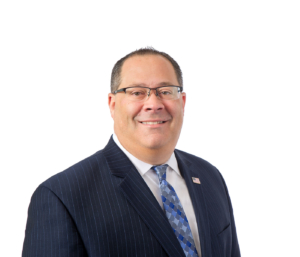*On April 28, 2020 Governor DeWine changed his stance from mandating face coverings to recommending face coverings for employees, clients and customers.
April 27, 2020
At a press conference on April 27, 2020, Ohio Governor Michael DeWine announced plans for non-essential Ohio businesses to begin reopening in the wake of closings prompted by the coronavirus pandemic. Governor DeWine indicated this decision was based on data showing that the various “stay at home” orders and other measures apparently had successfully blunted the potential for an overwhelming impact on the state’s health care system.
The plan, known as “Responsible Restart Ohio,” which is detailed below, consists of a phased resumption of various business segments, combined with a variety of measures intended to combat the potential for further disease transmission. The plan was designed to continue protecting the health of employees, customers, and their families; support community efforts to control the spread of coronavirus; and lead responsibly in getting Ohio back to work.
May 1, 2020
Elective surgical procedures not involving an overnight stay can resume. Also on that day, dentists and veterinarians can begin providing services.
May 4, 2020
Businesses involved in manufacturing, distribution, and construction can return to work. So too can businesses described as “general office environments.”
May 12, 2020
Consumer, retail, and service business can re-commence operations.
Some business are still not authorized to re-open. These include:
- K-12 schools
- Child day care facilities
- Restaurants and bars (carry-out and delivery are still permitted)
- Hair salons and beauty businesses (including massage therapy)
- Certain adult day care/support services
- Entertainment, recreation, and gymnasiums
- Places of public amusement, including all parades, fairs, festivals, and carnivals
- Country clubs and social clubs
- Gambling facilities
- Swimming pools (other than those serving a single house)
- Campgrounds and RV parks
- Aquariums, zoos, and museums
- Auditoriums, stadiums, and arenas
Also, certain provisions of the prior “stay at home” orders remain in effect, including a continued prohibition on mass gatherings of ten or more people. No decision has been made regarding whether summer camps for school-age children can open.
As part of the phased reopening, safe business practices must be followed. All businesses must require face coverings for employees and customers/clients at all times – “No mask, no work, no service, no exception” is the key phrase in the plan. Employees must undergo a daily health assessment intended to confirm fitness for duty, including taking their temperature, monitoring for fever, and watching for coughing or trouble breathing. Good hygiene must be maintained at all time, including hand washing, sanitizing, and appropriate social distancing. Workplaces must be cleaned and sanitized throughout the work day and at the end of the day or shift. Capacity must be limited at 50% of the fire code in order to promote social distancing. Appointments should be used where necessary to limit the potential for congestion.
Additional specific protocols apply based on the particular industry segment in which the employer is involved (complete guidance is available here). Most prominent is the requirement across all industries that a six-foot distance be maintained between individuals; where that is not possible, barriers must be installed. Manufacturers must change shift patterns to reduce the number of shifts, increase factory floor space, and provide for daily disinfection of desks and workspaces. In addition, it is recommended that employers provide a stipend to employees for private transportation to and from the workplace, apparently in an effort to reduce reliance on public transportation.
For general office businesses, employers must continue to allow employees to work from home “when possible,” reduce the sharing of work materials, and limit travel as much as possible. Businesses are encouraged to close employee cafeterias and other gathering spaces. No buffets are permitted in employee cafeterias. General office businesses are recommended to have at least three weeks of cleaning supplies on hand.
Retail businesses are recommended to provide floor markers that facilitate social distancing, use contact-free payment methods, and increase capacity for delivery and curb-side pickup. They are also required to install hand sanitizers at high-contact locations, and to clean high-touch items such as shopping carts after each use. High-contact surfaces must be cleaned hourly. Self-service food stations and product samples are prohibited.
If a COVID-19 infection is detected, five steps must be followed:
- The business must report the infection to its local health district.
- The business must help facilitate the local health district’s efforts to engage in contact tracing.
- The shop/floor must be shut down for deep sanitization if possible.
- A professional cleaning/sanitization must be completed.
- The business must consult with the local health department regarding reopening.
Governor DeWine noted there was no requirement that individuals wear a face covering when leaving their home. However, he noted that “we recommend it.”
Darrell A. Clay is a partner at Walter Haverfield who focuses his practice on labor and employment and litigation. He can be reached at dclay@walterhav.com or at 216.928.2896.
